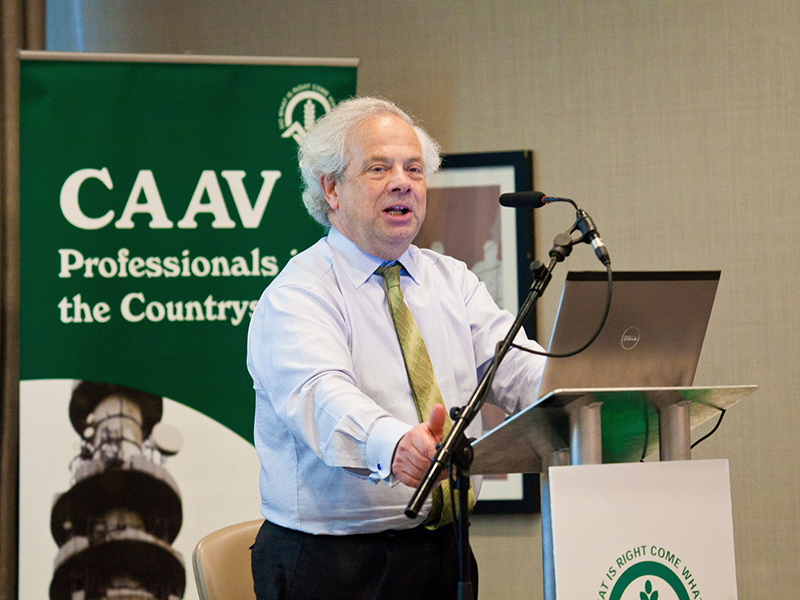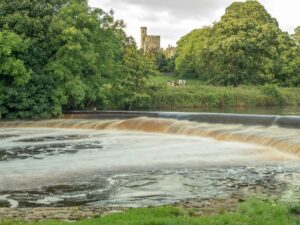A stasis in the let sector is revealed in the latest annual CAAV Agricultural Land Occupation Survey 2022, which covers decisions made where tenancies were granted or ended and other occupations changed in that year.
CAAV members have contributed data for the Survey for England and Wales and the Survey for Scotland, says CAAV secretary and adviser Jeremy Moody. “These figures have been particularly useful this year in replying to the Treasury’s consultation on agricultural property relief from inheritance tax (APR) and let land, doing so on the basis of data not anecdote.”
With the stasis in land occupation reported in its Surveys, the CAAV is actively looking at how this can be tackled, using taxation – following the increasing success of income tax relief in the Republic of Ireland, housing – whether for the older farmer or the new one, and by other means, says Mr Moody.
“We are pleased to continue to contribute on these themes to the work of Defra’s Agricultural Productivity Task Force, helping produce its summary guide to farming structures, as well as elsewhere. While barely started in the Survey period, the phasing out of Basic Payment now underway in England may play a part in that – especially now it is delinked from land and farming.”
The Survey for England and Wales shows the reduced activity in the let sector since 2005 and the start of the Single Payment continuing. Little previously vacant land was newly let and there was no significant loss of land to environmental uses.
The decline in the number of agricultural holdings act (AHA) tenancies remains slow. Two‐thirds of the 1986 Act tenancies which ended with no successor were re‐let as FBTs, a lower fraction but with an average length of 10.68 years.
The average agreed length for all FBTs was 3.66 years; for those over one year it was 5.46 years. Larger and better equipped holdings are generally let for longer terms; holdings with a house and buildings let for an average term of just under 10 years.
Few tenancies (7.6%) were of whole, fully equipped farms with a house. Most lettings were of bare land. New entrants tend to be offered longer tenancies, with 71% of all lettings to new entrants being for a term of more than five years.
The Survey for Scotland shows a low level of activity, with a let sector that appears to be both limited and sustained by the incentive that Basic Payment gives for claimants to stay in place.
Bare land lettings remain the dominant type of letting. Sixty-seven per cent of lettings in 2022 were of bare land and just 8% included a dwelling – the balance includes buildings but no dwellings. Although it has been conventional to think of Scottish agricultural holdings as fully equipped, the results in this Survey continue to highlight the dominance of bare land units in the number of new lettings in Scotland.
“Despite the differences in tenancy law between Scotland and that in England and Wales, all parts of Great Britain show low levels of activity, indeed stasis, in the let sector, while most new lettings are of bare land,” says Mr Moody.
“With the sector’s sensitivity to the policy environment, it remains to be seen whether the delinking of payments from land and farming in England will come to unlock letting opportunities and the effects any other policy changes might have.”
About the CAAV
The Central Association of Agricultural Valuers (CAAV) is a specialist professional body representing, qualifying and briefing over 2,900 members practising in a diverse range of agricultural and rural work throughout England, Wales, Scotland and Northern Ireland.
CAAV members are agricultural and rural valuers who provide professional advice and valuation expertise on issues affecting the countryside from tenancy matters to sales and purchase of farms and land, from taxation and compulsory purchase to auctioneering, and from conservation issues to farming structures.
The full Survey can be seen on this link.
We are always happy to speak to the press – if you have any queries, please contact Marianne Curtis at Agri-hub PR on 07443 747808 or email [email protected].





